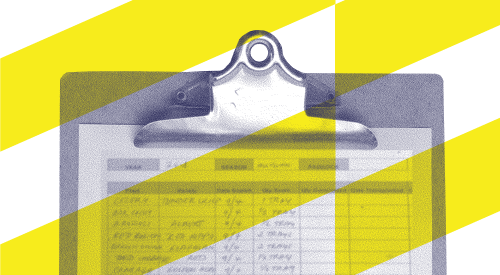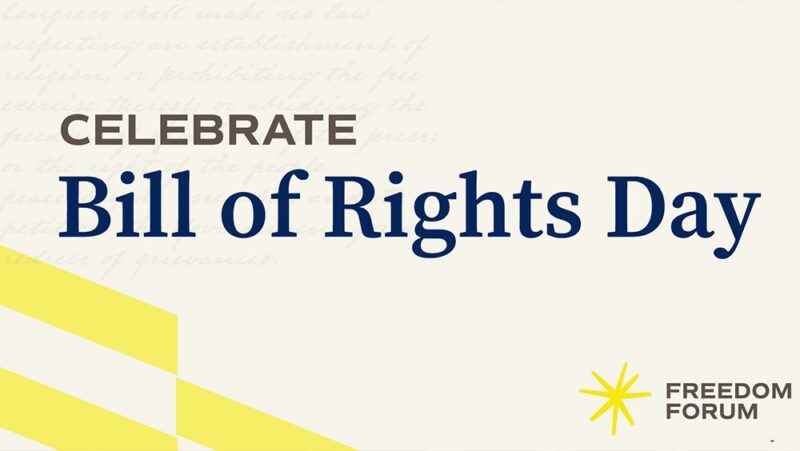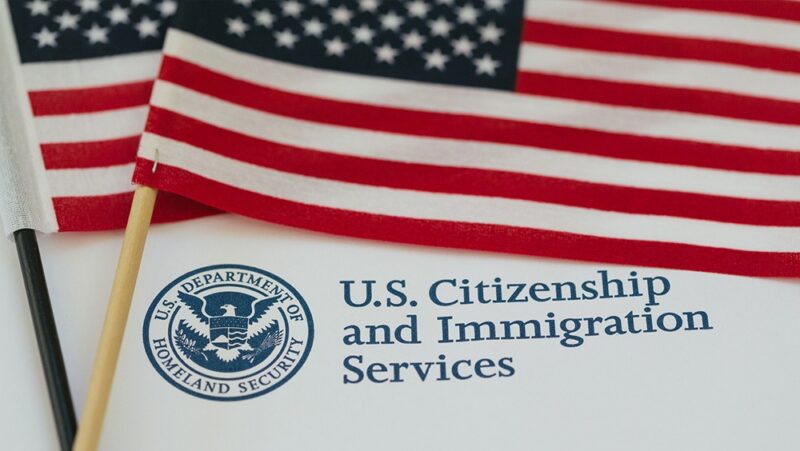Freedom of Petition
What is the freedom of petition under the First Amendment?
Petition protects our right to ask the government to fix something we see as not working or to change a policy or practice we don’t like, without fear of reprisal or punishment. We can petition federal, state and local governments and the judiciary – essentially any part of government at any level.
Petition is not limited to signing a paper or online petition. It includes any effort to ask for change to existing laws in a peaceful manner. While a petition for change must be heard by government officials, they are not required to act on it.
Petition protects lobbying, whether done personally or through a lobbyist, a person or company hired to present views or requests to government officials. This freedom also protects the right to sue the government in court.
How does freedom of petition protect our rights?
When used with the other freedoms in the First Amendment – religion, speech, press and assembly – petition has been a powerful tool that has supported social change from the birth of our nation to ending slavery, to powering the move for women’s suffrage and underpinning the Civil Rights Movement.
Petition has deep roots in our legal heritage, dating back 800 years to the Magna Carta and the English Bill of Rights of 1689. Both documents established principles that are embodied in U.S. law.
The nation’s founders viewed the freedom of petition as the most important freedom. They saw it as the means to protect all of our freedoms, essential in a self-governing system of government.
Petition also protects people with minority views from being overwhelmed or ignored by a majority – essential for an effective democracy.
In McDonald v. Smith in 1985, Supreme Court Chief Justice Warren Burger said, “Petition is cut from the same cloth as the other guarantees of (the First) Amendment and is an assurance of a particular freedom of expression.”
How can you use the freedom of petition?
Freedom of petition protects many ways of bringing your views and requests to the government. You exercise freedom of petition when you:
- Testify or speak at a public meeting at any level of government, from a local school board to a state legislature to members of Congress and the president.
- Submit a written complaint or request for change to a government agency.
- Call or email your representative with feedback about a law or policy.
- Meet in person with a government official.
- Circulate a petition, a ballot initiative or referendum request for others to sign and then submit it to a government office to be placed on the ballot.
- File a lawsuit.
RELATED: Perspective: Petition is the Freedom that Gets Things Done
The American Bar Association lists four kinds of petitions protected by the First Amendment:
- Political petitions include nominating petitions filed by political candidates to get on a ballot, petitions to recall elected officials and petitions for a proposal to be voted on. Signers typically must be U.S. citizens, registered voters and live in the election district addressed by the petition.
- Legal petitions ask a court to issue a specific order and are usually filed by a lawyer involved in a specific case or lawsuit.
- Public purpose petitions ask officials to take or not take a specific action. These are circulated to get signatures from members of the public who share the petition’s view. Signers generally do not have to establish any other credentials than their own identity.
- Internet petitions are often intended to raise awareness of an issue. They may be directed to people or organizations as opposed to the government (for example, a petition to ask Taylor Swift to perform in your city). Only the government is bound by the First Amendment to protect freedom of petition.
Requirements to sponsor a political or public purpose petition of the government vary from state to state. Start by identifying the purpose and focus for the petition: What do you want to change and who do you want to make the change? For political petitions, state laws may require you to ask for a printed name after a person’s signature, an address and often to state whether they are a registered voter.
Explore our freedom of petition article library

Can freedom of petition be limited?
The government may set reasonable systems for making certain that signatures on a written or online petition are valid. It can set general rules for how petitions are gathered and submitted. But those requirements must not be intended to or have the effect of discouraging people from exercising this right.
States and federal agencies may enact narrower limitations that are justified if they serve a compelling government interest. In South Dakota, sex offenders are prohibited from circulating a petition. The Federal Bureau of Prisons does not allow prisoners to physically circulate a petition among the prisoner community, though they still have a right to “petition the government” via the filing of lawsuits and other means. . And while government employees can “speak as citizens on matters of public interest,” courts say they cannot use petitions in connection with or about their official duties.
Saying or writing something critical of someone in a petition does not provide automatic protection against a lawsuit by them for defamation. But some lawsuits are considered an attack on the right of petition. These Strategic Lawsuits Against Public Participation, or SLAPP lawsuits, are designed to simply deter someone from petitioning or criticizing someone. A SLAPP lawsuit is filed not so much to win the case but to drain financial resources of opponents and divert public attention away from the purpose of the petition. It also may warn future petitioners of the financial penalties they could face. More than 25 states have adopted laws to help people facing SLAPP lawsuits to defend themselves.
RELATED: How Anti-SLAPP Laws Protect Your Right to Free Speech
How has freedom of petition been used throughout U.S. history?
The First Amendment’s 45 words end by noting our right to “petition the government for a redress of grievances.” The Declaration of Independence sent to England’s King George III in 1776 was a petition seeking changes in how that nation governed the colonies. England’s refusal to even consider those changes sparked the Revolutionary War and American independence.
The U.S. House of Representatives was deluged in the early 1800s with petitions seeking to end slavery in the United States. House leaders responded by enacting rules starting in 1836 that said the House no longer would accept petitions on the subject, a position abandoned in 1844 as unconstitutional.
For more than half of the nation’s history, women could not vote and in most states could not sign contracts or other legal documents on their own. A petition in support of women’s suffrage came from a meeting at Seneca Falls, New York, in 1848. By 1878, Congress had received petitions from more than 30,000 women across the United States. Petitioning continued until the 19th Amendment ensuring women’s right to vote was ratified in 1921.
RELATED: Women Win the Vote
Voting is often called the ultimate expression of petition. By voting, citizens can re-elect an incumbent or remove them if they ignore their petition. While not specifically a part of the freedom of petition, voting can be viewed as an extension of a petition. If officials ignore or reject a petition, citizens can turn to the ballot box in support of candidates who agree with the point raised in the petition.
RELATED: You Have a Right to Speak, Assemble, Petition — So Now, Register to Vote
Where do Americans stand on freedom of petition?
Americans use freedom of petition more than they might realize. Freedom Forum surveys show petition is one of the least-known First Amendment freedoms. But most Americans have signed a petition and nearly half have petitioned elected officials in other ways.
RELATED: We Need to Get a Petition Going to Learn More About ‘Petition’
Explore the Freedom of Petition
What do Americans think about their freedom of petition?
Latest articles
You might also be interested in


